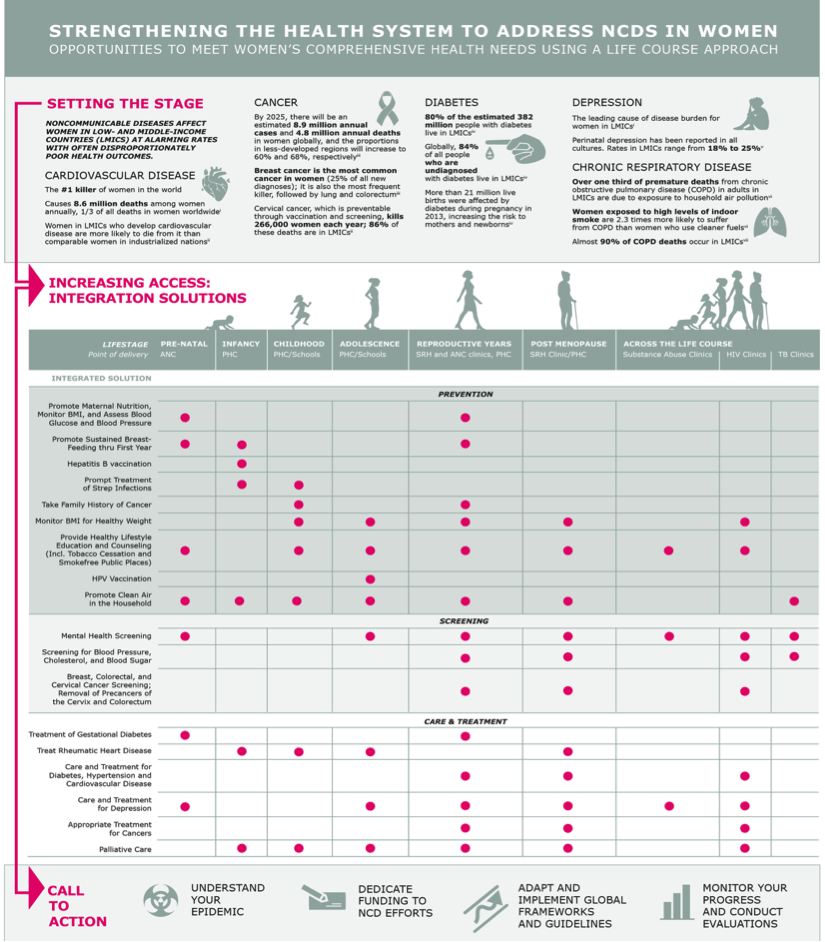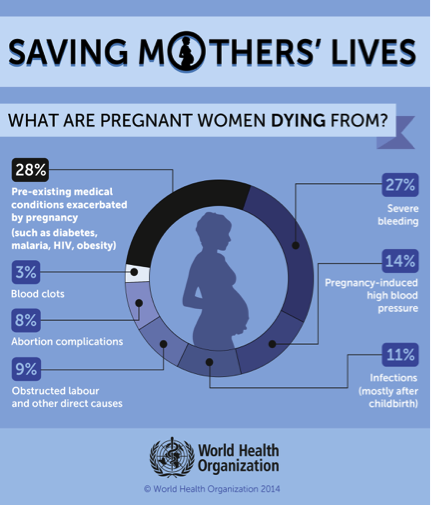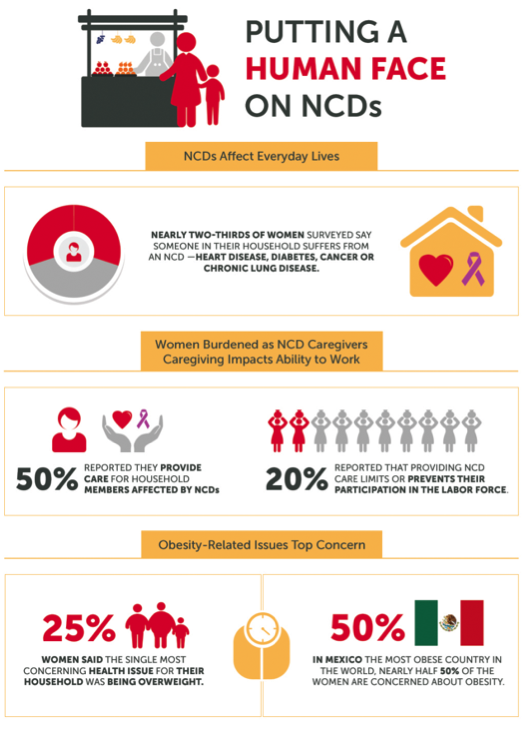By Nalini Saligram and Heather White
Co-Chairs of the Taskforce on Women & NCDs
The thousands of women who gather in Copenhagen next week for the Women Deliver Conference will surely leave the meeting feeling positive and inspired after sharing stories of amazing women and accomplishments. As women, we can all be proud of the progress the world has made to advance the health and wellbeing of women around the globe. The central role of women in the Sustainable Development Goals (SDGs) gives us great hope that our generation is indeed serious about leaving the world a better place for the next generation by lifting up women, so women can lift up the world.
In this spirit, let us reflect on just one aspect of many in a woman’s life: her health. A woman’s life is more than her reproductive years. A woman’s role and contribution to society goes beyond her child-rearing years. The world must commit to nurturing a woman from her birth, through her fifth birthday, to her adolescent years, through marriage and childbirth and family life, right through the productive years to her old age. Known as a lifecourse approach, this will require a systematic strengthening of health systems the world over.
What are NCDs, and why care about them? Non-Communicable Diseases, or chronic diseases like heart disease, diabetes, cancer and chronic lung diseases — are the #1 killer globally. What is less well known is that NCDs are the #1 killer of women, killing more women around the world than maternal mortality and HIV, TB, malaria combined.
- Heart disease alone kills 8.6 million women each year, more than 15 women every minute.
- Women are most impacted by cooking fumes, especially in lower income countries. Globally 3 billion people — about 50% of the world’s population — use solid fuels or unclean cookstoves, increasing the risk of chronic lung disease, lung cancer, heart disease and child pneumonia.
- Three million women die of cancers (breast, lung, colorectal, cervical) each year.
Surely the #1 cause of women’s mortality — NCDs — should be the #1 women’s health priority and central to our development agenda.
There is more to this story. NCDs are a major underlying reason why pregnant women die. Diabetes and hypertension during pregnancy can lead to many complications during childbirth, a significant cause of maternal mortality. Diabetes in pregnancy can have serious consequences for both mothers and their children. According to the International Diabetes Federation, one in seven live births is affected by gestational diabetes. Addressing NCDs is one way of saving mother’s lives.
Many NCDs can be mitigated by adopting healthier behaviors. According to the WHO, 80% of heart disease, 80% of diabetes and 40% of cancers can be prevented by avoiding tobacco, reducing alcohol consumption, eating healthy foods and increasing physical activity. We believe that we women are a powerful solution to the NCD crisis as we make decisions everyday about the food the family eats, and the physical activity they engage in.
NCDs affect women not just as patients but also as caregivers. Arogya World, a member of the Taskforce on Women & NCDs, conducted a study of 10,000 women in 10 countries on the impact of NCDs on the everyday lives of women and their families. Results showed that one half of the women surveyed provided care for someone in their household with an NCD and 20% of them had to quit their jobs to do so. This issue of unpaid care must be addressed in the era of the SDGs — too many women are not counted in their country’s GDP because of NCDs.
In honor of Women Deliver, and in collaboration with the NCD Alliance (www.ncdalliance.org), we have developed an infographic that highlights many of these issues. Our website (www.womenandncds.org) also offers links to several reports, briefs, articles, statements and videos.
So let us, each one of us, today, one the eve of 2016 Women Deliver Meeting, demand a firm commitment on NCD prevention and care from our world leaders, as they commit to improving the health and lives of women everywhere.



